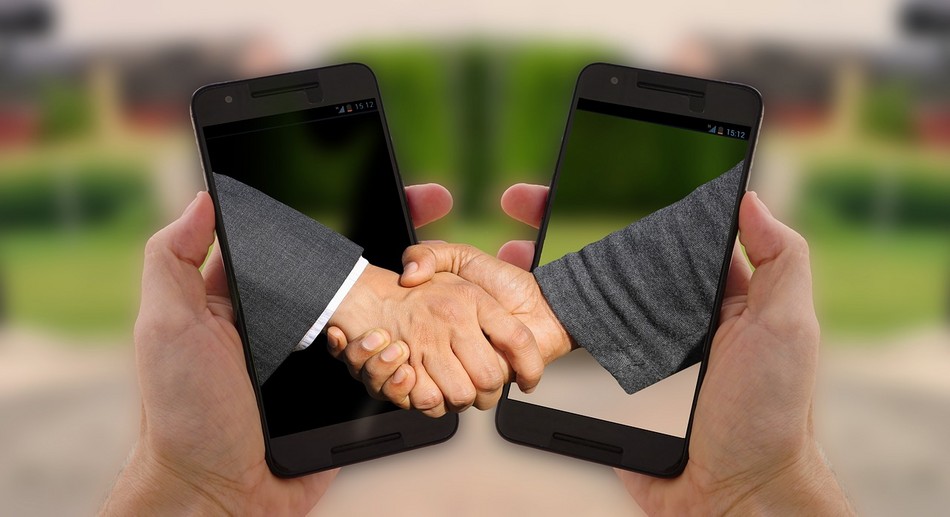What I learned from introducing myself to a stranger every day for a month
When I knocked on Dave’s* door — my next-door office neighbor who I hadn’t spoken to in the three months since he moved in — I could see the look in his eyes. It was that predictably awkward moment when he was trying to figure out why some random stranger was interrupting his day.
“I just wanted to introduce myself” I blurted out. “Are you in the middle of something?” Then, sensing that this was a friendly encounter, my interruption seemed to come as a relief from the mind-numbing real estate sales calls he was in the middle of. “No,” he responded, “I’m just making some calls.”
From there, we went on to engage in some office chit-chat, but perhaps more importantly, we planted a small seed of friendship.
All month long, this scenario repeated itself over and over as I tried to find one stranger every day to introduce myself to and, hopefully, plant a small seed of friendship.
But I would be lying if I said it felt natural. Honestly, nearly every time I initiated a conversation with a stranger, it felt awkward. At least for the first minute or two, after which, people tended to warm up and appreciate me taking the time to have a conversation with them that was more than just a transaction.
I’m not a naturally gregarious extrovert. At best, I’m an ambivert, who tends toward introversion. I’m perfectly happy to curl up with a book for days on end. In fact, when we moved in November of my kindergarten year to a new house and a new school, my mom swears by the story that my new kindergarten teacher told her that I didn’t speak to another student until the very last day of school. (Not exactly a raging extrovert.)
Which brings me to why I decided to throw myself into the arms of discomfort (yet again) in trying to become more skilled at something that’s outside my comfort zone. Why on earth would I subject myself to the voluntary torture of risking social rejection, with all the unknowns and uncertainties it entails?
Well, for starters, I’d like more friends. And I’m guessing you would, too.
Friendship is one of the most life-giving, meaning-enhancing, happiness-boosting things we can fill our life with. In fact, based on the longest-running study of all time on happiness, researchers at Harvard have shown it’s the strength of our relationships that predicts the most satisfying, healthiest, and happiest lives. And Dr. Julianne Holt-Lunstad’s research has shown that how many conversations we have in our day — what she calls “social integration” — is a stronger predictor for how long we’ll live than whether we’re overweight, whether we exercise, or whether we quit smoking.
So why is it so hard to prioritize making friends as an adult? Is there a price we have to pay to overcome the fear (or straight-up inertia) of planting those friendship seeds?
But how could that be? You’re not scary, ill-intentioned, or maleficent. And, of course, the probability is that the vast majority of those who we think of as strangers are just like you — good people, trying to figure out how to pay their bills, take care of their families, and do a bit of good in the world.
Which is exactly the insight that led Dr. Nicholas Epley and colleagues, at the University of Chicago, to run an experiment about talking to strangers on buses.
To Dr. Epley, happiness is all around us — all day, every day — in the form of strangers. If conversations with others are a meaningful source of happiness, Dr. Epley wondered, what would happen if you asked people to get onto a bus, deliberately sit next to a stranger, introduce themselves, and try to keep a conversation going during their commute?
In a set of nine different experiments, this is exactly what Epley and colleagues did. But, as good scientists, they first wanted to know what the people in the experiment expected those conversations to feel like. And sure enough, they expected the interactions to feel awkward, unpleasant, and like they were going to feel like a bother to the other person.
As it turns out, their expectations were exactly wrong. By the end of the conversation, they rated their commute as more pleasant and enjoyable when they chit-chatted with a perfect stranger than when they just kept to themselves.
Let that soak in. Their brains made a prediction: “This is going to be awful.” Then they did the “awful” thing and found that it was highly enjoyable. In science lingo, we call this a “prediction error.” In normal language, we call this: your brain lying to you.
So why do we resist the very thing that brings joy, health, and meaning to our lives?
So as we’ve become more and more lonely, we’ve simultaneously used the word awkward more and more. I’m not trying to point to causality, but I don’t think this is necessarily a coincidence.
So what would it feel like to embrace that small moment of awkwardness in the service of the bigger goal of developing friendships?
That’s what this last month taught me over and over again. Because it wasn’t just my new next-door office neighbor, Dave. There was Tory*, who every time I see him in our shared office hallway now shouts my name with a big smile and a hello. There’s Evelyn*, with her warm smile who always asks how I’m doing, making any day a little brighter.
There were practical benefits, like a good haircut recommendation I got from Becky* a hairstylist in our building, and good bike advice and know-how from Mark*, who runs a bike shop in our town. There was the twenty-minute conversation with Barbara*, who needs help for her son, who’s a veteran and suffering from PTSD. I didn’t give her any silver bullets, but I was able to point her in the direction of a handful of resources that might be useful.
There was John*, whose transmission went out at the entrance of a rotary/roundabout and who mostly just needed a bit of help calming his nerves and cooling his head while we called to get him the help he needed.
This list could go on. But the point is I was shocked to see what grew in my friendship garden after a single month. Each budding relationship flowed from my daily challenge of initiating a conversation with one stranger per day. Not only did I feel less lonely; it felt like others felt less lonely, too.
But it wasn’t free. If I had followed the familiar grooves of my daily routine (which are far more comfortable), none of this would have happened.
But it wasn’t very hard, either. All it took was initiating the conversation instead of waiting for someone to initiate it with me. It cost me roughly 1–2 minutes of emotional discomfort at the beginning of each conversation, but the awkwardness almost always melted away into genuine goodwill and a new seed of friendship.
If the Harvard study on happiness is right — that strong relationships are the key to a life well-lived — I’ll gladly pay the price of 1–2 minutes of awkwardness any day of the week.
![]()


























